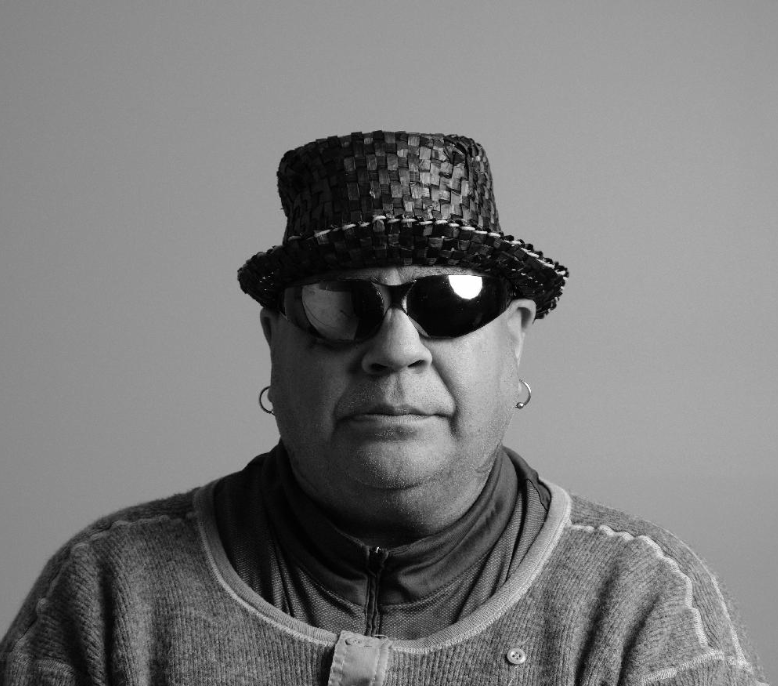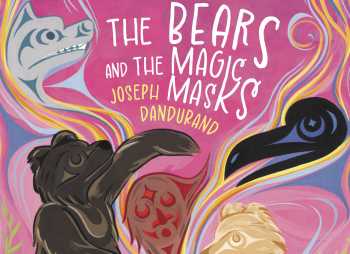Image Caption
Local Journalism Initiative Reporter
Windspeaker.com
Kwantlen First Nation writer Joseph Dandurand continues to share stories of his people.
But like all of his previous works, Dandurand’s latest book, The Bears and the Magic Masks, is one that comes from his own creative juices.
“All my work is from my imagination because we’re just small,” Dandurand said of his First Nation located in British Columbia. “The Kwantlen people, we used to number in the thousands on the (Fraser) river.”
Waves of smallpox, however, during the 18th and 19th centuries, decimated the Kwantlen population.
“It wiped out 80 per cent of all the Indians on the river,” he said. “So now today, there’s just under 300 Kwantlen people.”
Dandurand added in part because of the loss of languages and the impacts of residential schools, there’s nothing written about his Nation’s history that he can pull information from.
“I don’t have anybody in my community that I can go to and hear any old stories,” said Dandurand, who is 59. “We teach our children that each one of us has a gift. I like to think that what my gift is for some reason I’m showing stories and given the chance to tell them. But they’re all created from my imagination.”
The Bears and the Magic Masks shares a story of how the Kwantlen have lived in harmony with bears for a long time.
The story includes a tale of how a master carver fell into a river and was rescued and brought back to land by bears.
As appreciation, the carver makes some animal masks, which turn out to be magical ones, for the bears.
The Bears and the Magic Masks is Dandurand’s fourth children’s book that has been put out by Nightwood Editions, a B.C. publisher.
“I have numerous manuscripts of short stories for kids,” he said. “And they started pulling single stories out of those and creating books out of each short story.”
Dandurand said each time he writes a story, poem or a new play, it is based on a single image that he has stored in his head.
“With all my children’s books I try to include the teaching of trying to always give something back and not taking everything from the earth or else we’ll have nothing left,” he said. “So, the image of this one was I had this image of a carver who would carve masks and leave them on the cedar trees in the forest for the animals and they could come and put them on.”
Dandurand incorporated a bit of himself in his latest book.
“Because I’m a fisherman, and one of my worst fears is drowning, I liked the idea of how the animals saved the fisherman in the beginning of the story,” he said. “And then it goes on to show how he pays back for what he did for them by gifting them with masks.”
Besides being a writer, Dandurand is also the director of the Kwantlen Cultural Centre. He’s had this position since the centre opened in 2014.
Prior to that he had other jobs with his First Nation.
Dandurand said he was planning to move to Mexico 30 years ago. He was keen to live on the beach and write “bad poetry.”
But that never came to be.
“Our chief pulled me aside and she gave me that thing called salary,” he said. “And I’ve been working for our people for 30 years now.”

Dandurand started out doing some research for his First Nation. He followed that up by doing some archaeological work.
“Then we built our cultural centre here,” he said. “We needed a repository for all of our artifacts. So, that’s what half the building is. And the other half we needed a space to gather. So, I designed and we built a longhouse for our people. It’s kind of like a church or a chapel or a temple. It’s a safe place for us to gather.”
As the director of the Kwantlen Cultural Centre, Dandurand oversees all of the facility’s interpretive programming.
“We have school groups come in,” he said. “And we rent out the facility to other organizations.”
Dandurand enjoys sharing one story in particular with children at the centre.
“When I teach kids, I tell them that our story is that 10,000 years ago we fell from the sky and we landed on this island where we live now,” he said. “And we’re told that we’re allowed to take the fish from the river and we’ve been fishing ever since. I look pretty good for being 10,059 year old.”
The Bears and the Magic Masks was illustrated by Elinor Atkins, who is also a member of Kwantlen First Nation.
The book can be purchased here

